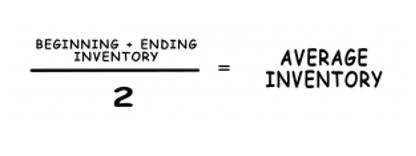
The value of goodwill is subjective because it depends goodwill meaning upon the valuation criteria of the valuer. It is not recognized as an asset because it is not an identifiable asset controlled by an enterprise that can be measured reliably at cost. The subsequent expenditure on intangible assets like brands, publishing titles, and items of similar nature are recognized as an expense to avoid any internally generated goodwill. Unlike physical assets such as building and equipment, goodwill is an intangible asset that is listed under the long-term assets of the acquirer’s balance sheet.
- Goodwill can also be recorded when the amount used in purchasing a target company is higher than the debt incurred.
- It’s intangible, tricky to value, and often only shows up when companies are bought or sold.
- It depends on factors like the market position and brand strength of a business, and customer loyalty also plays an important role.
- Because definitions and legal frameworks can vary across industries and regions, always do your due diligence to ensure your goodwill acts align with official regulations.
- Goodwill describes the positive reputation that a business develops, which generates customer loyalty and gives marketing efforts extra juice.
- Let us understand the various features of the concept of goodwill in accounting in detail.
How Goodwill is Valued in Company Acquisitions

The management benefits from it through greater share of the market, higher price of shares trading in exchanges and more opportunity for growth and expansion. The purchased business has $2 million in identifiable assets and $600,000 in liabilities. Investors should scrutinize what’s behind its stated goodwill when they’re analyzing a company’s balance sheet. The retained earnings answer should determine whether that goodwill may have to be written off in the future. Impairment reduces goodwill on the balance sheet and is recorded as a loss on the income statement, lowering the year’s net income. Earnings per share (EPS) and the company’s stock price are also negatively affected.
Goodwill Meaning in Accounting
From an accounting and fiscal point of view, the goodwill is not subject to amortization. However, accounting rules require businesses to test goodwill for impairment after a certain period of time. When a business is purchased and an additional amount is paid more than the amount of asset, then the additional amount is called Oil And Gas Accounting goodwill.
How to Read the Bench Income Statement From Your Stripe Dashboard
It helps in understanding the real value that a company brings into a merger or acquisition beyond its tangible assets. Anybody buying that company would book $10 million in total assets acquired, comprising $1 million physical assets and $9 million in other intangible assets. And any consideration paid in excess of $10 million shall be considered as goodwill. In a private company, goodwill has no predetermined value prior to the acquisition; its magnitude depends on the two other variables by definition. A publicly traded company, by contrast, is subject to a constant process of market valuation, so goodwill will always be apparent. When a company purchases another, it often pays more than the net fair value of the target’s assets and liabilities.
- Unlike physical assets such as machinery or buildings, goodwill cannot be touched or seen, yet it often constitutes the most valuable part of a business.
- Hence to determine the nature of the Goodwill in any one given case, it is necessary to consider the type of business and the type of customers.
- Consider the T-Mobile and Sprint merger announced in early 2018 for a real-life example.
- Below is a screenshot of how an analyst would perform the analysis required to calculate the values that go on the balance sheet.
- Having a clear understanding of why your goodwill is valued at a certain level can help during audits or when presenting financial information to investors or lenders.
While it contributes significantly to its success, the value of goodwill for a business can be hard to define as it doesn’t generate any cash flows for the business. Evaluating goodwill is a challenging but critical skill for many investors. It can be difficult to tell whether the goodwill claimed on a balance sheet is justified.

The sudden death of the partner causes a reconstitution of the partnership firm as in the case of the retirement of a partner.. The valuation of goodwill is needed under such conditions to calculate the amount to be paid to the deceased partner by the continuing partners. It depends on factors like the market position and brand strength of a business, and customer loyalty also plays an important role. Goodwill is acquired by a business when it produces adequate operating results, which are achieved by the merits of an entity, its assets, or by simply existing reputation and customer satisfaction over time.

Consistency in branding, messaging, and quality builds credibility over time. A loyal customer base provides both steady revenue and word-of-mouth promotion. In retail, goodwill can be tied to customer loyalty programs and brand recognition. Retailers often use loyalty data and customer feedback to gauge their goodwill. Effective management may involve optimizing inventory and enhancing the shopping experience so that customers keep returning. In tech, valuation often hinges on user base size, engagement metrics, and future growth potential.

Whether you call it a “gesture of goodwill” or “goodwill gesture,” the key is authenticity—focusing on a meaningful act that resonates with the recipient. Even though goodwill is technically considered an asset, it is not always reported on the balance sheet. Why not, because valuing a business is very subjective and can’t be measured easily or accurately. Introduction Publicly traded companies live and die by their credibility. Investors, analysts, and markets reward those who inspire confidence with strong valuations and capital access.
❌ No Predictable Pattern for Impairment
However, an increase in the fair market value would not be accounted for in the financial statements. In accounting, goodwill is an intangible asset recognized when a firm is purchased as a going concern. It reflects the premium that the buyer pays in addition to the net value of its other assets. Goodwill is often understood to represent the firm’s intrinsic ability to acquire and retain customer firm or business. Also, Goodwill is a long-term intangible asset that does have a separate existence from that of the business which means that it cannot be sold separately in the market like other assets. Hence, its realizable value is considered only at the time of sale of the business venture.
